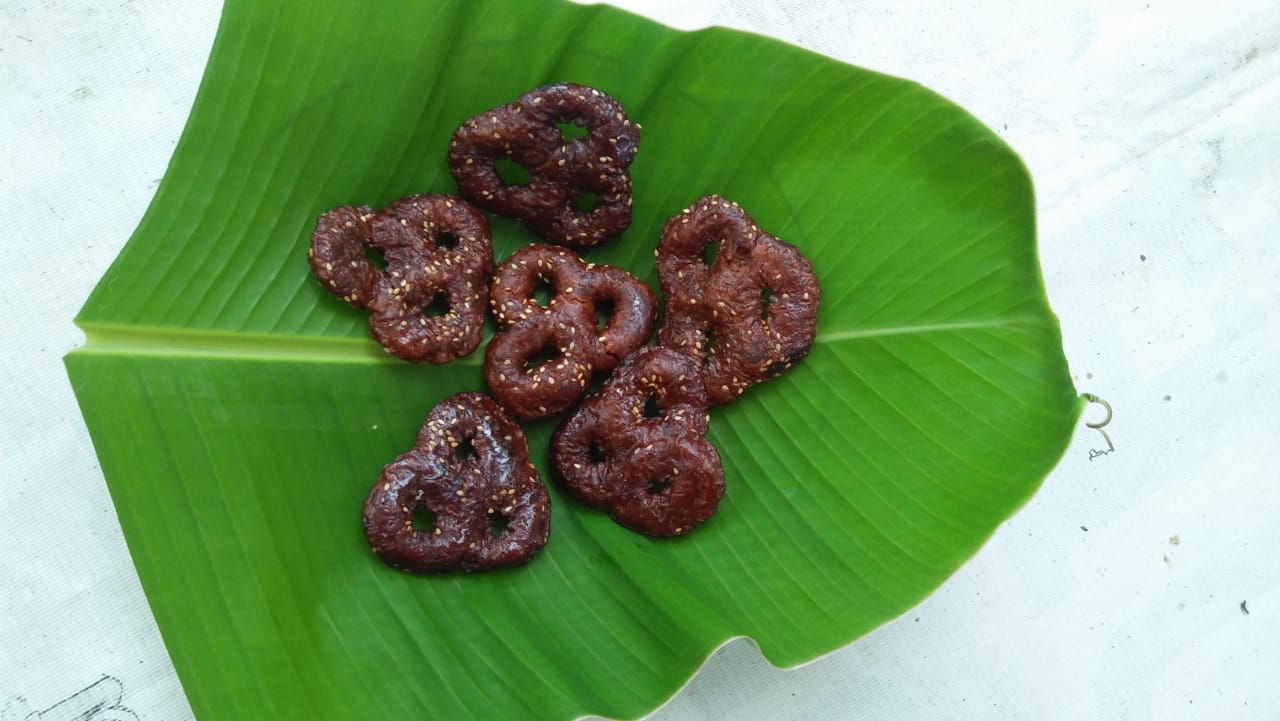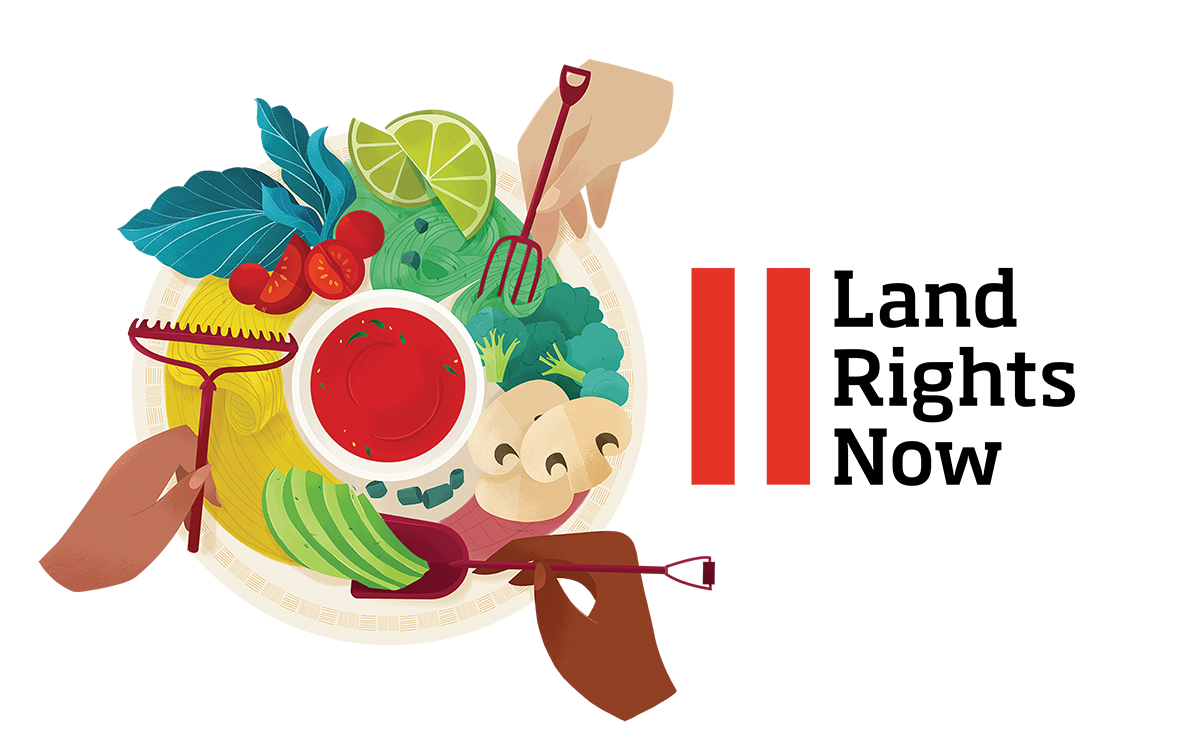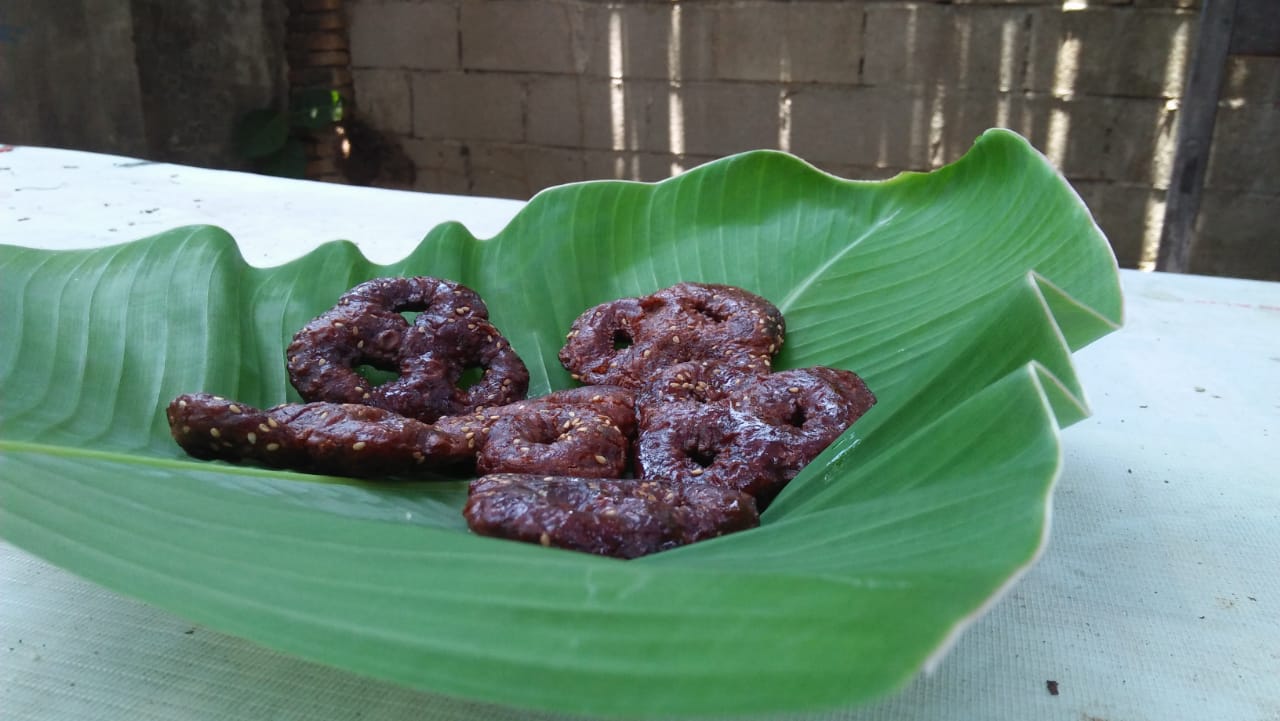Part 3 in special series for World Food Day 2018 in partnership with Land Rights Now mobilization. Find out more here.
Laiya
Every region has a traditional cake with their own unique and tasty characteristics. In South Sulawesi, one indigenous community in Sinjai District has their own story about a traditional cookie. To this day, laiya cookies are still served as a traditional identity of the Turungan indigenous community. In Bahasa Indonesia, ‘laiya’ means ginger. The cake does look like ginger, rounded and twisted into a figure-eight shape, and reddish in color. Therefore, it is called ‘laiya’ cake.
Laiya cake is always served during customary rituals such as weddings, harvest celebrations, rituals to ask for the almighty’s protection and fulfilment of religious vows or Nazr. The cake is shaped like figure-eights or as the locals call it, ‘Poto’ Nabi’ (the Prophet’s Knot). Laiya cake is an identity of the Makassar Buginese people of South Sulawesi.
The delectable taste of laiya cake also comes from ingredients fresh from the farm and processed by the Turungan indigenous community. The cakes are made from rice flour, white sticky rice flour, palm sugar, vegetable oil, water, and sesame seeds as desired. The preparation is relatively simple. Combine rice flour, sticky rice flour and palm sugar. Mix well and add water until the mixture becomes a dough. Shape the dough into thin ropes and twist into figure-eights. Sprinkle with sesame seeds and fry until cooked. Once cooked, serve the cakes on a layer of banana leaves to make the cakes softer and fragrant.
From this simple recipe and local ingredients, laiya cake has become a heritage passed on for generations among the Turungan indigenous community. This is what makes me want to learn more. Knowledge of local and traditional foods must be documented and recorded. Modernization has led to many generations forgetting their identity.
For that reason, this sense of curiosity must be infected to other youth so that they care, understand and take part in protecting this traditional cake as a local culture identity. If left ignored, traditional identities like these laiya cakes will become history with only a few that can remember it.
The youth must know and take pride. If not us then who?
Written by Burhanudin


